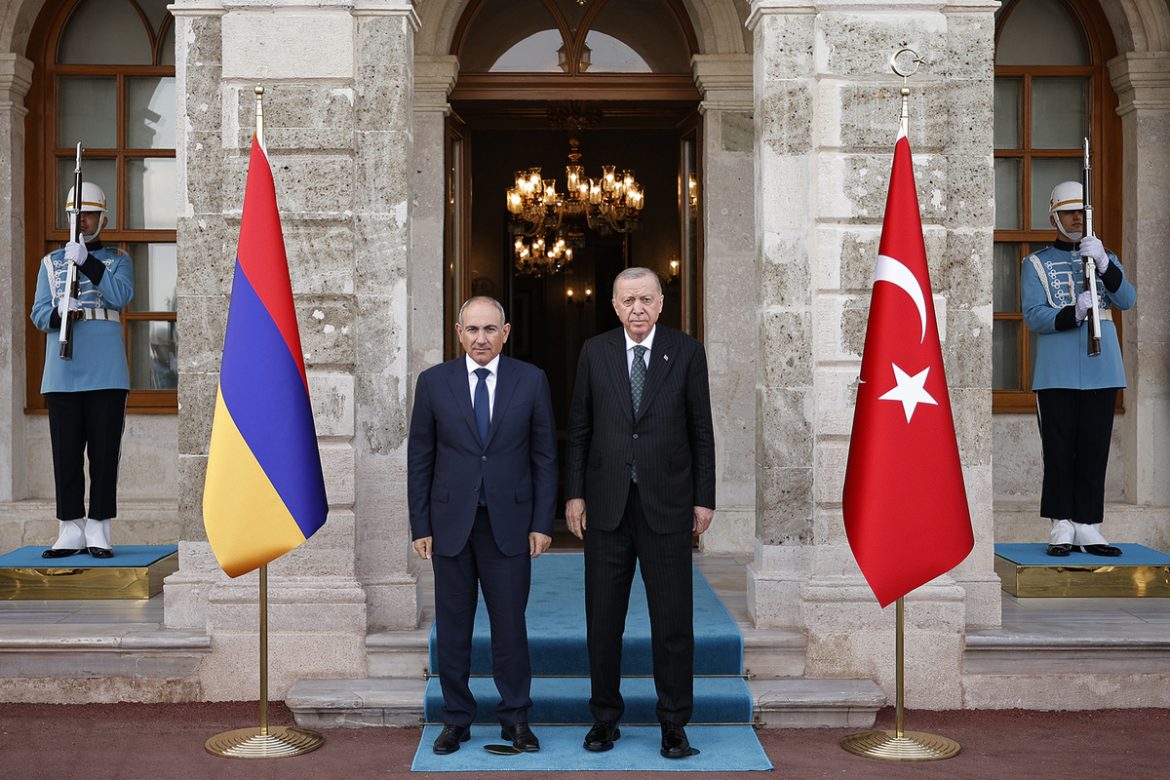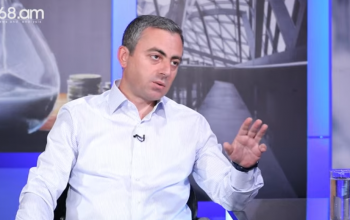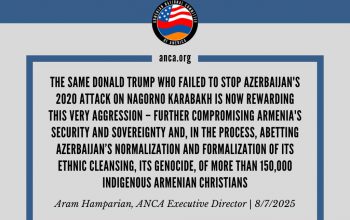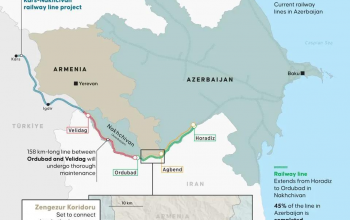Turkish President Recep Tayyip Erdogan and Armenian Prime Minister Nikol Pashinyan met in Istanbul on Friday to discuss Armenian-Turkish relations, the ongoing Armenian-Azerbaijani conflict, and broader regional developments—including the escalating crisis between Iran and Israel.
No concrete agreements were announced following the meeting, which took place amid rising fears that instability in Iran could have spillover effects in the South Caucasus.
According to a statement from the Turkish Presidency, Erdogan stressed the importance of the “consensus reached” in ongoing peace negotiations between Armenia and Azerbaijan. He reaffirmed Turkey’s commitment to supporting “win-win” initiatives aimed at fostering regional development.
The statement also referenced the normalization process between Turkey and Armenia but offered no specifics on the steps discussed.
The Armenian government’s readout of the meeting stated that Pashinyan reiterated Armenia’s commitment to normalizing ties with its neighbors. The leaders also discussed the Armenia-Azerbaijan peace process and Pashinyan’s Crossroads of Peace initiative, which envisions restoring regional transport links between Armenia and Azerbaijan.
However, Azerbaijan has rejected that proposal, demanding instead an extraterritorial corridor to its Nakhichevan exclave via Armenia’s Syunik province. Erdogan has repeatedly backed this demand, which Yerevan has so far refused. Ankara has also made clear that progress in Turkish-Armenian normalization depends on an Armenia-Azerbaijan peace deal acceptable to Baku.
Azerbaijani President Ilham Aliyev has hinted at forcibly opening the corridor, raising alarms in Tehran. Iranian officials have warned they will not tolerate any alteration of the Armenia-Iran border—a stance they have reiterated as regional tensions grow.
Some Armenian opposition leaders and analysts fear that Azerbaijan and Turkey might exploit a weakened or distracted Iran to launch military action against Syunik. Pashinyan, however, dismissed those warnings earlier in the week as “provocative” and “unfounded.”
Critics at home have voiced concern that Pashinyan’s continued engagement with Ankara and Baku could result in further concessions, undermining Armenia’s sovereignty and security. His visit to Turkey has only intensified those suspicions.
The official communiqués made only indirect references to the Iran-Israel conflict. Erdogan’s office noted that Turkey is “engaging with other leaders” to contain the crisis triggered by Israeli strikes on Iran. Pashinyan’s press service similarly stated that the two leaders discussed “regional developments” and “possible directions for bilateral cooperation” in that context.
Turkish President Recep Tayyip Erdogan and Armenian Prime Minister Nikol Pashinyan met in Istanbul on Friday to discuss Armenian-Turkish relations, the ongoing Armenian-Azerbaijani conflict, and broader regional developments—including the escalating crisis between Iran and Israel.
No concrete agreements were announced following the meeting, which took place amid rising fears that instability in Iran could have spillover effects in the South Caucasus.
According to a statement from the Turkish Presidency, Erdogan stressed the importance of the “consensus reached” in ongoing peace negotiations between Armenia and Azerbaijan. He reaffirmed Turkey’s commitment to supporting “win-win” initiatives aimed at fostering regional development.
The statement also referenced the normalization process between Turkey and Armenia but offered no specifics on the steps discussed.
The Armenian government’s readout of the meeting stated that Pashinyan reiterated Armenia’s commitment to normalizing ties with its neighbors. The leaders also discussed the Armenia-Azerbaijan peace process and Pashinyan’s Crossroads of Peace initiative, which envisions restoring regional transport links between Armenia and Azerbaijan.
However, Azerbaijan has rejected that proposal, demanding instead an extraterritorial corridor to its Nakhichevan exclave via Armenia’s Syunik province. Erdogan has repeatedly backed this demand, which Yerevan has so far refused. Ankara has also made clear that progress in Turkish-Armenian normalization depends on an Armenia-Azerbaijan peace deal acceptable to Baku.
Azerbaijani President Ilham Aliyev has hinted at forcibly opening the corridor, raising alarms in Tehran. Iranian officials have warned they will not tolerate any alteration of the Armenia-Iran border—a stance they have reiterated as regional tensions grow.
Some Armenian opposition leaders and analysts fear that Azerbaijan and Turkey might exploit a weakened or distracted Iran to launch military action against Syunik. Pashinyan, however, dismissed those warnings earlier in the week as “provocative” and “unfounded.”
Critics at home have voiced concern that Pashinyan’s continued engagement with Ankara and Baku could result in further concessions, undermining Armenia’s sovereignty and security. His visit to Turkey has only intensified those suspicions.
The official communiqués made only indirect references to the Iran-Israel conflict. Erdogan’s office noted that Turkey is “engaging with other leaders” to contain the crisis triggered by Israeli strikes on Iran. Pashinyan’s press service similarly stated that the two leaders discussed “regional developments” and “possible directions for bilateral cooperation” in that context.




